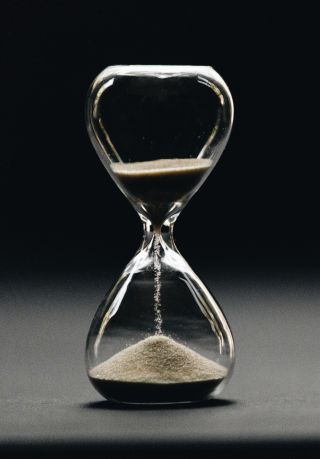Mindfulness
How Time Perspective Affects Travel
Do you live in the past, present, or future?
Posted April 15, 2024 Reviewed by Michelle Quirk
Key points
- Understanding your own time perspective can enhance your life experience.
- Our characteristic types are neither good nor bad, just different from one another.
- Children are present-oriented, while adults favor the future. Seniors tend to preserve the past.

As an enjoyable vacation winds down, some of us become impatient to get home and move on to the next thing. Maybe that’s you. But, instead, you might be someone who tries to preserve, or even expand, every remaining moment. In either case, you’ll attempt to lock these precious flashes into your memory bank with mental snapshots. But without any effort, and all too quickly, the present quickly fades into the past. How we experience time is relevant to travel. Understanding your own time perspective can enhance your experience.
Stanford University Professor Emeritus Phil Zimbardo, author of The Time Paradox, notes that we are all oriented to time in one of the following characteristic ways—past, present, or future. According to his profile, I am future-oriented. What might your style be? Let’s see.
Those of us in the future category are goal-driven, focused on the future consequences of our actions, and forward-looking in general. Then there are the present-hedonic folks, the pleasure seekers who enjoy things in real-time, with less concern about tomorrow. Folks who live in the present tend to be open to experiences they didn’t necessarily plan, and they don’t need to check it off their bucket list. If this style fits, you’re probably most content with the moment-to-moment flow of your travel.
Past-oriented people make up the remaining category. This might be you if you compare current experiences with memories of past events or situations. Past-oriented folks determine the value of travel, according to Zimbardo, by assigning a pleasure quotient to the comparison—better or worse and by how much? This style is more analytic and rational, and based less on emotional factors than is true for present-focused folks. Does this sound like you?
Our characteristic types are neither good nor bad—just different from one another. Future- and past-oriented travelers provide a logical, systematic understanding of where travel fits into human experience. These styles have great evolutionary value. Our distant ancestors, who chronicled the past and predicted the future, tended to be the shaman and storytellers of the tribe. Reviewing the past and predicting the future was critical to human survival.
Present-oriented people tend to have more fun in the moment, and every society needs this type of person to keep things from getting too serious. Savoring the present is an acquired skill and is worth the effort to cultivate! Also, by expanding the present-pleasant and then reviewing a trip in the past-positive, you can have both good feelings and pleasurable memories. Since, as Zimbardo’s research indicates, we have characteristic ways of perceiving time, maintaining a present focus may require some work—if this isn’t naturally how you see the world.
Zimbardo points to another dimension of time—one that is age-related. In general, children are present-oriented while adults favor the future. Seniors tend to preserve the past. As a future-focused senior, I'm aware of the need to put my foot on the brake and try to prolong the present—particularly the pleasing moments while vacationing. This takes some work.
Regardless of the type that best explains you, here are some strategies to expand your time orientation:
- If you’re naturally drawn to the past or future, notice these tendencies and gently nudge yourself toward the present moment. When you catch yourself reminiscing about the last time you were in Paris, as you sit at an outdoor café savoring your steaming latte and munching on a croissant, remind yourself that the people you see strolling by are there right now—not last time or next time. The weather is uniquely now, not needing a contrast with a warmer or sunnier last visit. The present can be pleasant without any backward reference—or simply less.
- Future-oriented travelers tend to spend their present moments imagining future trips, which makes sense in planning life but can steal from the here and now. Recently, on a river cruise through Austria, I was struck by how much conversation I overheard about planning the next trip. Busily sharing these thoughts with fellow travelers, these vacationers sat by a large picture window as the ship sailed into a new city—totally missing the present moment, unnoticed outside of the window.
- Again, if future is your natural mode, keep that in mind as you travel. Learn to prolong the only moment that truly exists—this one that you anticipated for months or maybe years. The first step involves gently guiding your awareness back to the present. Practicing meditation even a few minutes a day will make this process easier.
References
This article is based on a chapter from my book: Inward Traveler: 51 Ways to Explore the World Mindfully, 2018.
Stanford University professor emeritus, Phil Zimbardo, authored The Time Paradox, Free Press, N.Y., 2008.


